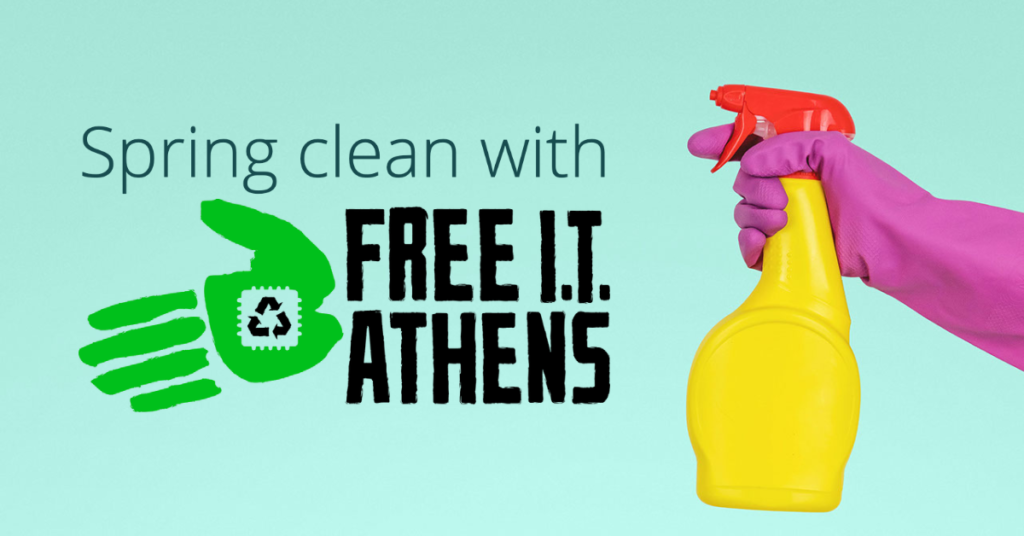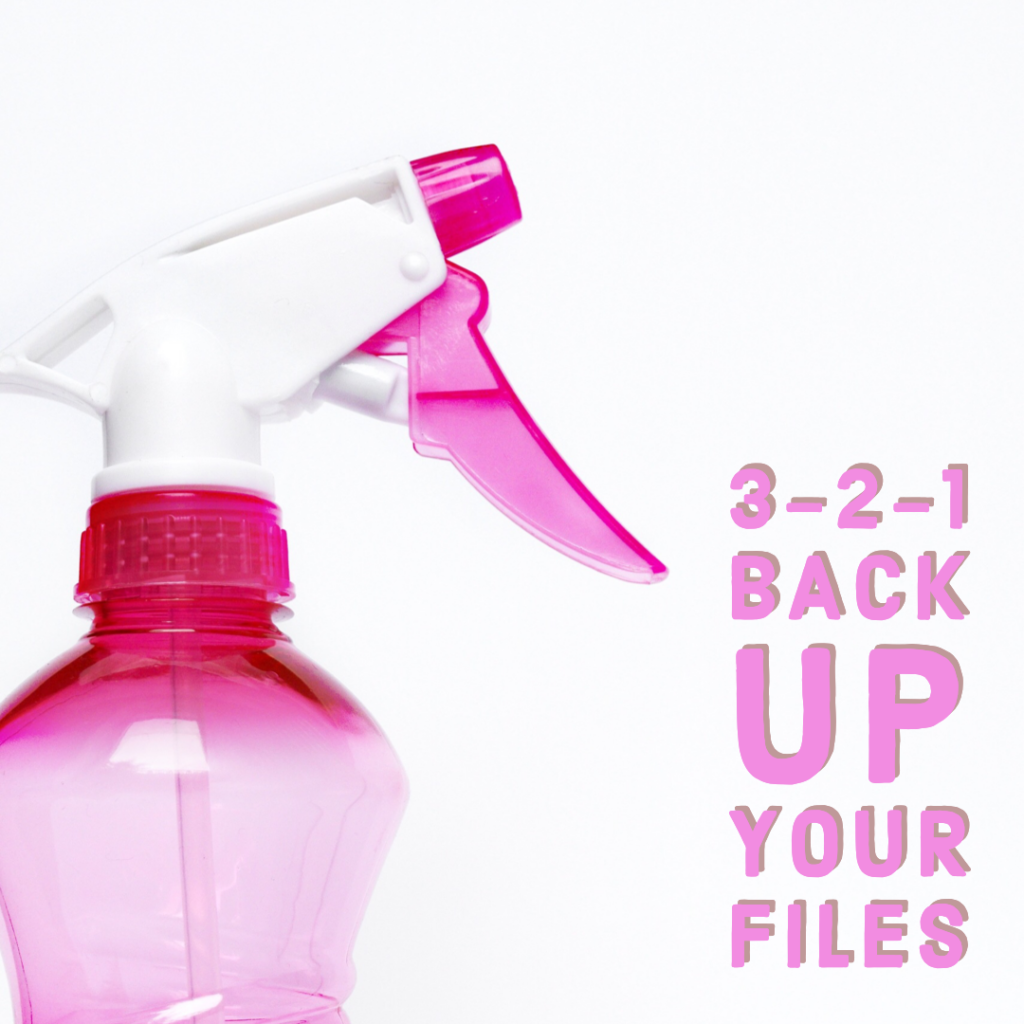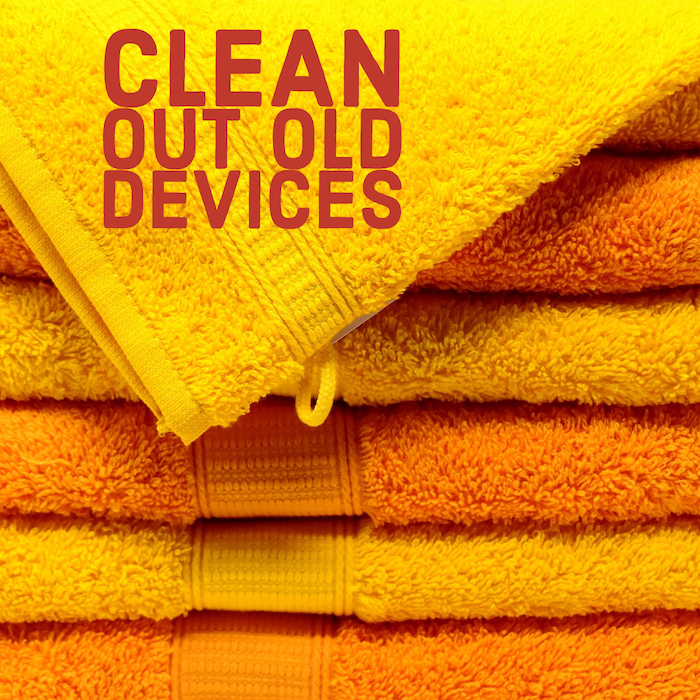As you might have noticed by the thick layer of pollen that’s currently covering Athens, we’re well into spring. You know what that means… it’s time to clean! After you’ve dusted the baseboards and let some fresh air into your room, why not tackle some digital cleaning too? Here are our 5 tips to get you started on a digital spring clean.
Tip 1: Back up your important files. Having multiple copies of documents, photos, and videos is essential in case of hardware failure, ransomware, or everyday accidents – we’ve tried to rescue many laptops during tech support sessions after someone knocked over a favorite beverage.
Consider the 3-2-1 rule for backing up data:
- Keep 3 copies of your files
- Put 2 of the copies on separate devices – one could be on your desktop and another on an external hard drive, for example
- Keep 1 of the copies outside your home
We recommend using software like NextCloud to store that extra copy in the cloud.
Tip 2: Review your passwords. It’s not uncommon for people to come into the Free I.T. Athens workspace and confess that they use the same password for everything. We understand the struggle of keeping up with a unique password for everything, which is why we strongly recommend a password manager.
Using a password manager like Bitwarden or KeePass means you only have to remember one strong password. The manager will keep track of the rest for you.
For a little extra motivation, check if a hacker compromised the password you use for everything using Have I Been Pwned. This website compares your password to a massive collection of leaked information and tells you exactly how many times your particular password has shown up. Yikes!
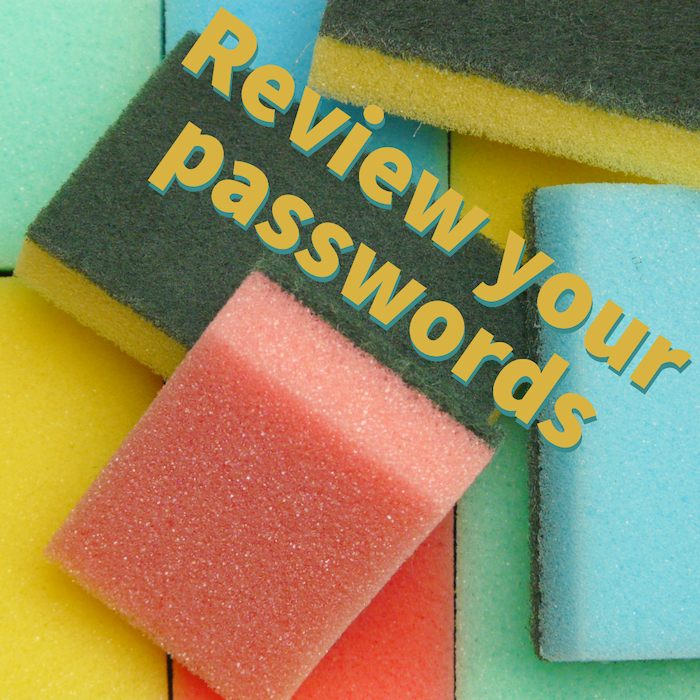
Tip 3: Clean out your old computers. When you’re done with a computer, it’s crucial to securely erase all your data before passing the device on to someone else. Unfortunately, simply deleting sensitive files doesn’t ensure that a malicious person can’t recover them and get to your data.
At Free I.T. Athens, we DBAN every hard drive that you donate to us. To do this, we open your computer or laptop, remove the drive, and connect it to our DBAN station, where software not only erases all your information but writes random information on top as an extra security measure. If you’d like to ensure your data is treated responsibly, please consider scheduling an appointment to donate old computers and laptops to Free I.T. Athens.
Tip 4: Assess privacy settings. Unfortunately, companies change their privacy policies all the time. Ideally, they let you know clearly what changes they are making and explain how to opt out of invasive practices, but we all know that’s not always what happens.
While we’re doing our spring cleaning, it’s a good idea to visit our most-used apps and services to check if we’re comfortable with all our settings. There may be some things, for example, that we’d rather only our friends see, not the entire internet. You may discover that there are certain things you can opt out of. While reviewing Facebook’s settings, I was surprised to learn I could opt out of some of their face recognition services.
While you’re in all your account settings, why not go ahead and enable two-factor authentication too? Many services offer the service, and you won’t regret this extra layer of security.
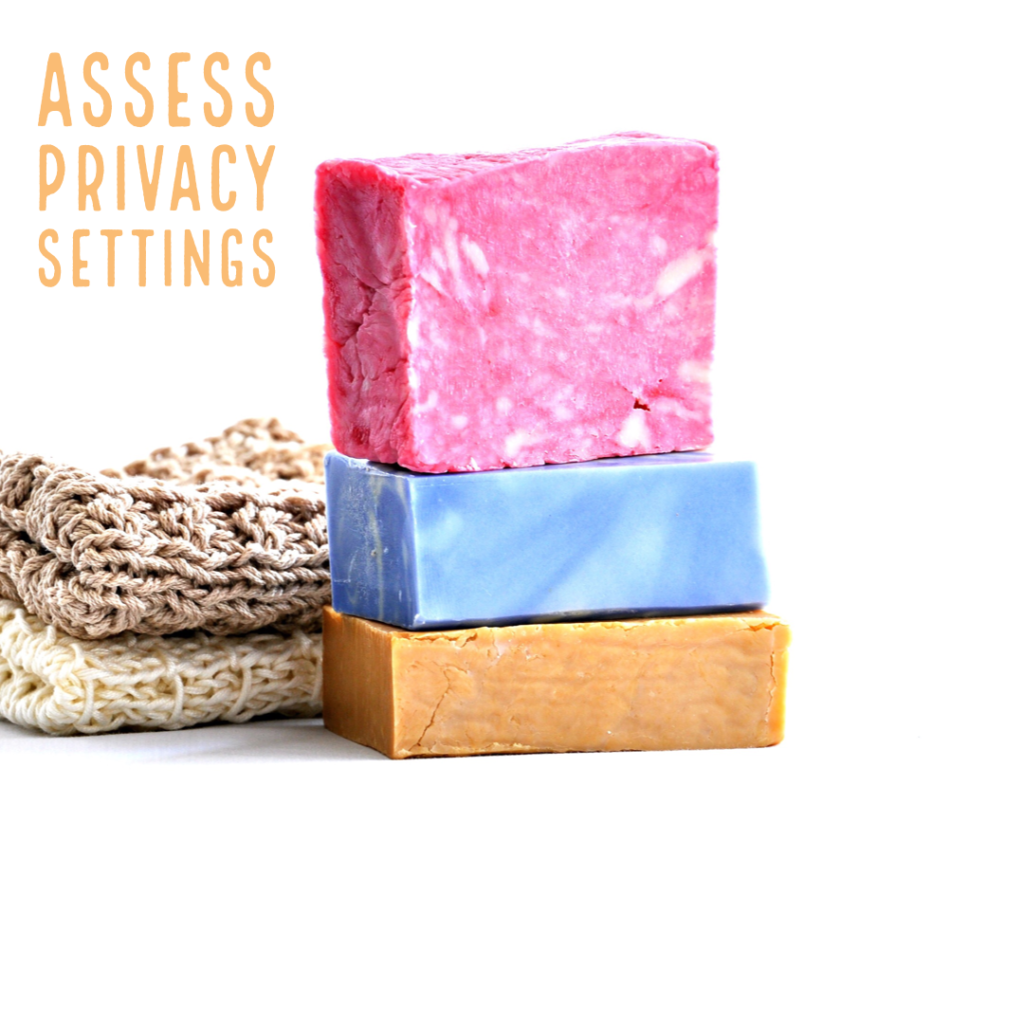
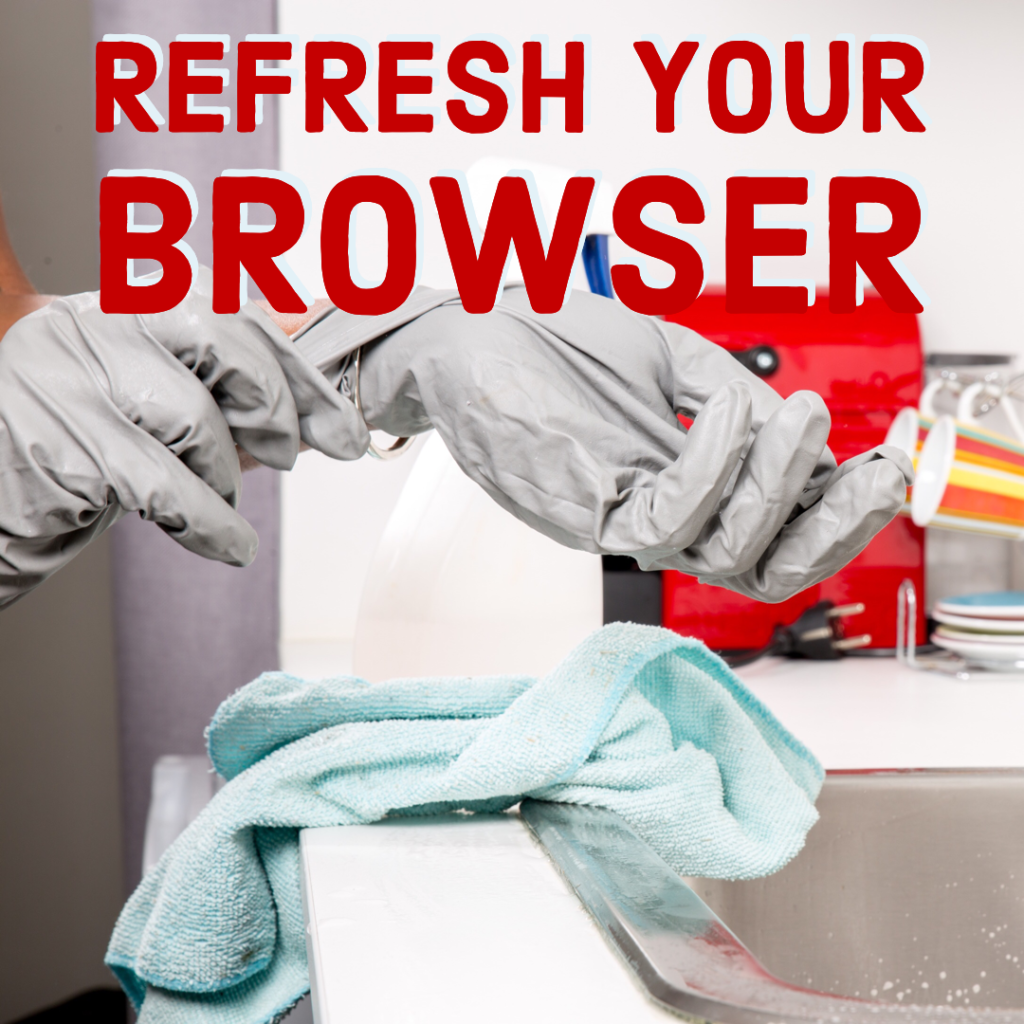
Tip 5: Refresh your browser. Not just a page, but the whole browser! Your browser saves tons of information about you in the form of your history, cache, and cookies. Your history is a record of all the web pages you’ve visited. The cache is information that the browser has saved about you and the sites you visit. Cookies do all sorts of useful things, such as allow a website to “remember me” so you don’t have to log in 15 times in one afternoon. Unfortunately, cookies are also the primary way websites can track you even after you’ve navigated away from the website that gave you the cookie. It’s a good idea to clean them out regularly.
Indian University has an excellent resource for clearing the history, cache, and cookies out of all sorts of browsers. Heads up: when you clean out your browser, you will be logged out of everything you’re signed into. That won’t be a problem for you, though, because you started using a password manager in cleaning tip 2. 😉
We hope we’ve inspired you to break out the digital dust mops and clean with us. Do you have a digital spring cleaning tip you’d like to share with our community? Let us know by posting on one of our social media pages. We’d love to hear from you!

